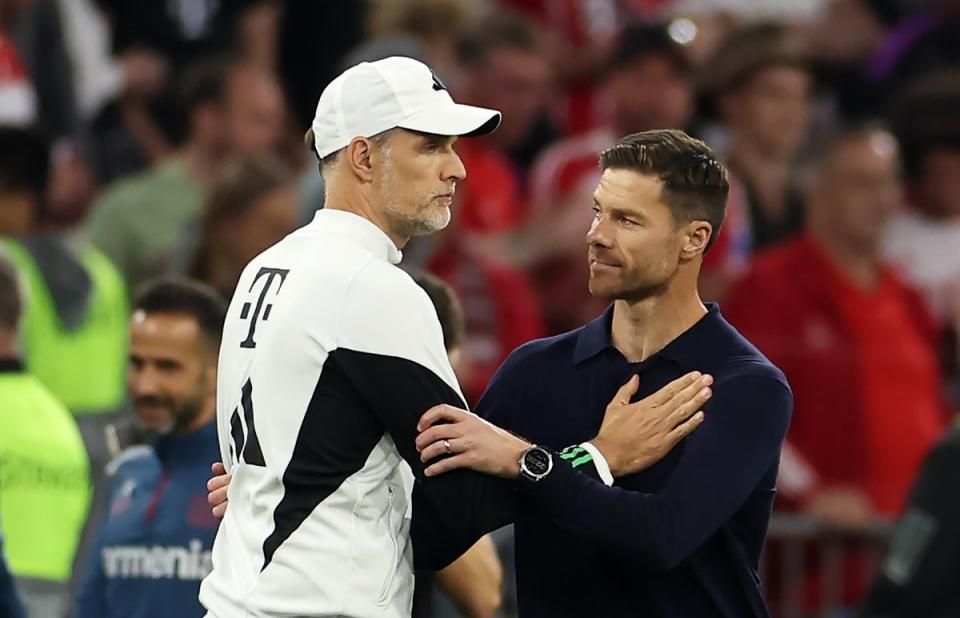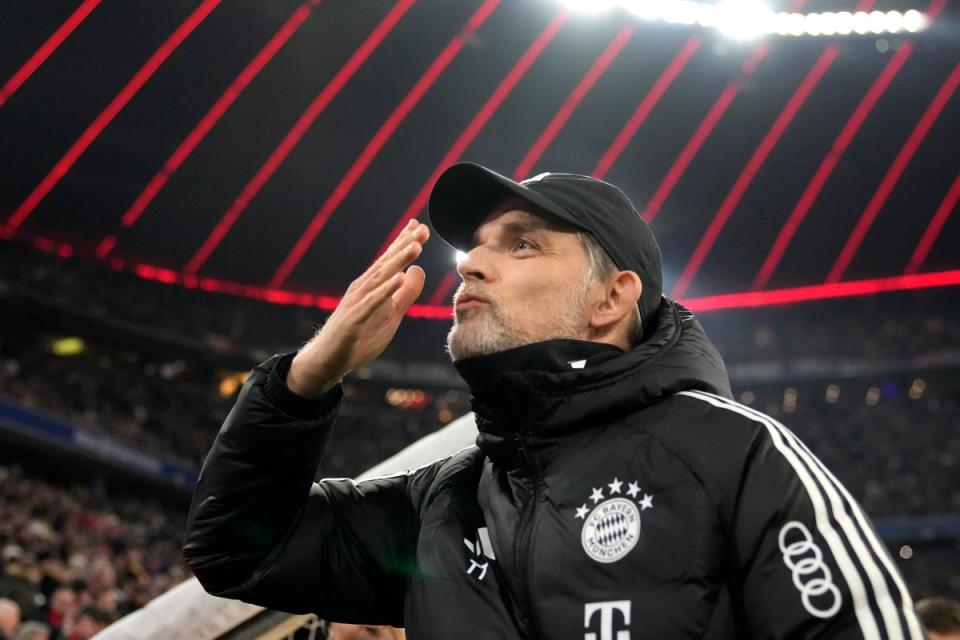The sorry story of Thomas Tuchel’s break-up with Bayern Munich

Bayern Munich were already the reigning world champions when they sought to own the future. “We are convinced that with Julian Nagelsmann, we can continue the magnificent successes of recent years,” said club president Herbert Hainer in April 2021. They paid a world-record transfer fee for a manager – some €25m – and gave the wunderkind of coaching a five-year contract.
Then they sacked Nagelsmann last year and parachuted in Thomas Tuchel, a sense of panic at the prospect of not winning the Bundesliga married with the sense they had to appoint a possible upgrade before someone else did. And now, 11 months on, in early 2024, comes the quaint phrase that Tuchel and Bayern will “end their working relationship in the summer”. To put it another way, he is leaving by mutual discontent, probably going down in history as the manager who ended Bayern’s run of 11 straight Bundesliga titles; so, in a more impressive way, is Xabi Alonso.
When Bayern should rarely have been stronger, they look at their weakest for years. They have contrived to trade downwards in thinking they were going up. They face just a second last-16 exit from the Champions League in 13 seasons. The great German superpower is running out of elite German managers to appoint: within a year they have in effect sacked two of arguably the four best now, in Nagelsmann and Tuchel. A third, Jurgen Klopp, wants a sabbatical, has an affinity to Borussia Dortmund and has rebuffed Bayern’s advances in the past. Perhaps that could lead to a return for Hansi Flick. But if there is no doubt that Alonso is the outstanding candidate, a growing sense of dysfunction could be a deterrent for a manager who, aided by Klopp’s glowing tribute, is likely to attract interest from Liverpool. There is a risk Bayern end up with another Niko Kovac, another second-tier candidate, another placeholder on borrowed time.
Certainly Tuchel’s swift unravelling shows patience is limited in Bavaria. But it also reflects his own failure. Nagelsmann lost only 10 of 84 matches in charge, his successor 11 in 44. He only won the Bundesliga because Dortmund imploded on the final day of last season.
A manager whose tactical brilliance underpinned Chelsea’s Champions League triumph in 2021, succeeding Bayern on the European honours list, blundered in perhaps the biggest Bundesliga game for years earlier this month, attempting to mimic Alonso’s tactics against Bayer Leverkusen: playing 3-4-2-1 backfired, along with selecting Eric Dier ahead of Matthijs de Ligt, in a 3-0 defeat.

It illustrated several reasons for his demise. There was the recruitment policy that seemed based on old episodes of Match of the Day, Tuchel forever coveting Premier League players of varying degrees of quality. There was the reality he had more power in purchasing than most Bayern managers, following the sackings of CEO Oliver Kahn and sporting director Hasan Salihamadzic.
There was the way Tuchel was permitted to smash the club’s transfer record for Harry Kane, who scored goals by the hatful, and yet Bayern were still less than the sum of their considerable parts; his team were the opposite of Leverkusen in that respect. Tuchel could argue his Bayern were an unfinished jigsaw, lacking a couple of pieces: the extra defender he wanted last summer, when Benjamin Pavard left, and a defensive midfielder. Fulham’s Joao Palhinha was pictured in a Bayern shirt on deadline day but never actually joined. It meant Tuchel’s inability to solve the conundrum of Joshua Kimmich and Leon Goretzka, the seemingly incompatible double act, proved more costly.
The no-show performances against Leverkusen and Lazio were indications of fractured relationships, of unsuccessful man-management. And if there is a sense that, unlike Klopp, Tuchel’s high-intensity approach means he is less likely to be a dynastic manager, to last for a long time in the way Bayern intended Nagelsmann would, he normally brings a couple of seasons of success. Instead, he will bring up his first anniversary at Bayern as a dead man walking, his authority undermined by his impending departure.

Being cast out of Bayern, reaching the point of no return so swiftly and with no real accomplishments – stumbling to a Bundesliga because Dortmund fell flat on their faces scarcely counts, while a German Cup defeat to third-division Saarbrucken was an embarrassment – represents the most chastening moment of a stellar career.
Multilingual, hugely gifted, with a track record of achieving in both France and England, Tuchel remains very employable. In a year of huge managerial turnover, it is easy to imagine him on the shortlists for Barcelona, Liverpool and, should there be a vacancy, Manchester United. The chances are that opportunistic approaches from, say, West Ham could be easily rebuffed. He is still in management’s A-list. Yet his star has waned a little. Bayern should have been the culmination, the club where he cemented his place among the greats of his generation, the team he took to his second Champions League. Instead, he will return to the job market while Bayern look for a manager for what should have been the fourth season of Nagelsmann’s five-year deal.

 Yahoo Sport
Yahoo Sport 



































































